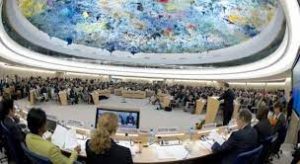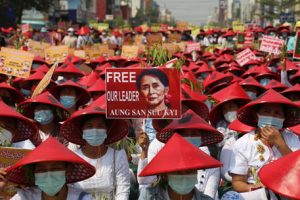THE STORY
Magna Carta, also called Magna Carta Libertatum, is an English legal charter, issued in 1215 and written in medieval Latin.
Magna Carta required King John of England to sign a contract with the rebel noblemen. It explicitly protected certain rights of the King’s subjects: it guaranteed the Church’s rights, it prevented from unmotivated arrest, it guaranteed a fast justice and it limited taxes from the king.
 Magna Carta listed what later came to be considered human rights. Among them was the right of the Church to be free from government interference, the right of all free citizens to own and inherit property and to be protected from excessive taxes. It established the right to decide not to remarry by widows who owned property and established the principles of fair trial and equality in front of the law. It also contained provisions prohibiting corruption and misrule by public officials. Magna Carta was the first document forced onto an English King by a group of his subjects (the barons) in an attempt to limit his powers by law and protect their privileges. It was preceded by the 1100 Charter of Liberties in which King Henry I voluntarily stated which of his powers were under the law. By the time of the English Civil War(1642-1651) it had become an important symbol for those who wished to show that the King was bound by the law.
Magna Carta listed what later came to be considered human rights. Among them was the right of the Church to be free from government interference, the right of all free citizens to own and inherit property and to be protected from excessive taxes. It established the right to decide not to remarry by widows who owned property and established the principles of fair trial and equality in front of the law. It also contained provisions prohibiting corruption and misrule by public officials. Magna Carta was the first document forced onto an English King by a group of his subjects (the barons) in an attempt to limit his powers by law and protect their privileges. It was preceded by the 1100 Charter of Liberties in which King Henry I voluntarily stated which of his powers were under the law. By the time of the English Civil War(1642-1651) it had become an important symbol for those who wished to show that the King was bound by the law.
Magna Carta is normally understood to refer to a single document, that of 1215, but various amended versions of Magna Carta appeared in subsequent years, and it is the 1297 version which remains on the statute books of England and Wales.

Magna Carta was indisputably the most significant early influence on the historical process that led to the rule of constitutional law today in the English speaking
world.
Magna Carta influenced the development of the common law and many constitutional documents, including the United States Constitution and the different declarations of rights in Europe such as Italy, France and Geneva (Switzerland).
SITUATION IN MYANMAR
Unfortunately, there are still many countries where human rights are not respected at all.
A very popular but, above all current, example is what is happening in Myanmar.
On TV and in the newspapers these days we often hear and read news about the repeated protests by people in Birmania.
These were provoked after the coup d’état took place last February: the army took power and in the capital Naypyidaw the main leaders of the majority party were arrested. Among them also Aung San Suu Kyi, head of the National League for Democracy who won the election in November 2020. Leading the coup was the head of the Burmese armed forces, General Min Aung Hlaing, who declared a one-year state of emergency. The army is violently repressing the demonstrations, even using live bullets against those who protest, as denounced by organizations in defense of human rights.
The most likely reason for the upset of the government is that the most powerful generals felt threatened by it and had to take necessary “countermeasures”, fearing that the National League of Democracy would begin to pass laws aimed at breaking their monopoly on the economy.
In particular, the generals have only apparently opposed drug traffic, they have sold off raw materials of which the country is rich, such as tropical wood, they have violated human rights by locking political prisoners in jail, repressing dissent and freedom of expression. From nearly 50 years ago the army waged a war against ethnic minorities, forcing hundreds of thousands of citizens to live in refugee camps on the border with Thailand.

Recently the USA government and the European one have expressed their serious worry for the actual situation and have invited the military authorities to respect the vote expressed by the population last 8th of November. They wished that all the civil members of the government will be released. On the other hand, China, Thailandia, Philippines and Cambogia don’t express any opinion about the coup thinking that it is a internal affair and not a violation of human rights.
Valentina Tessari, 3F, 2020/2021











No Comment